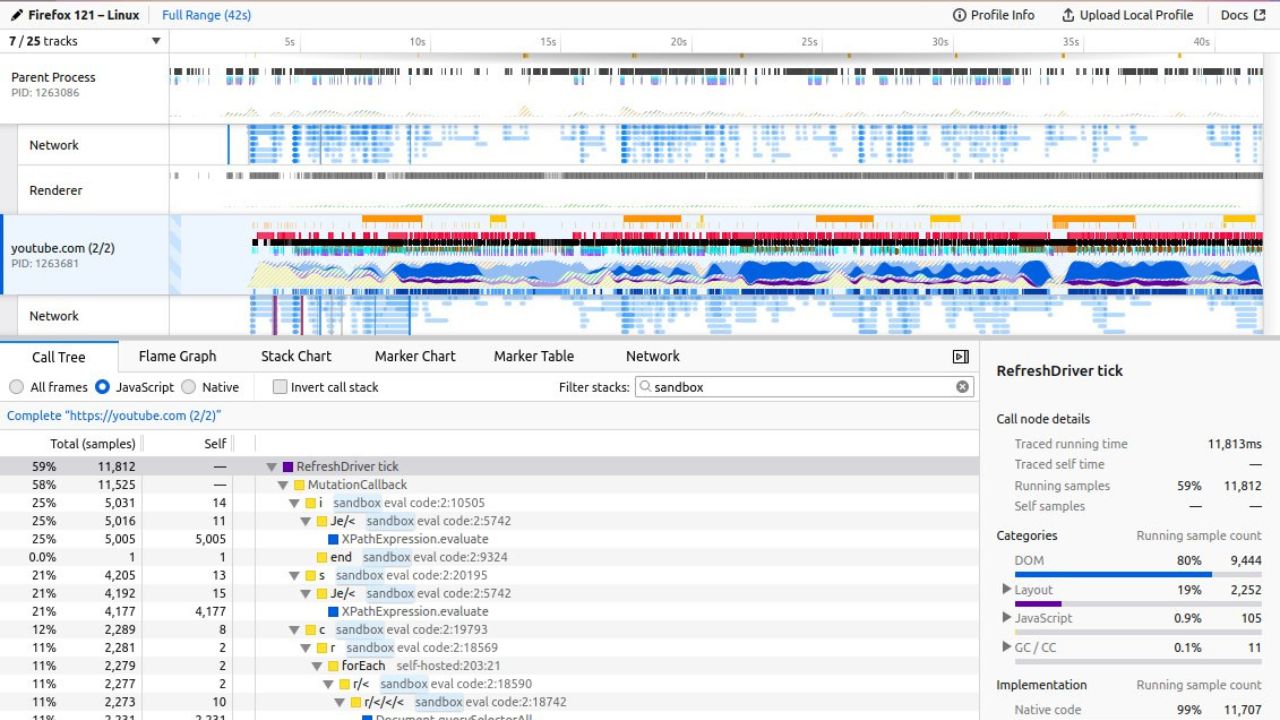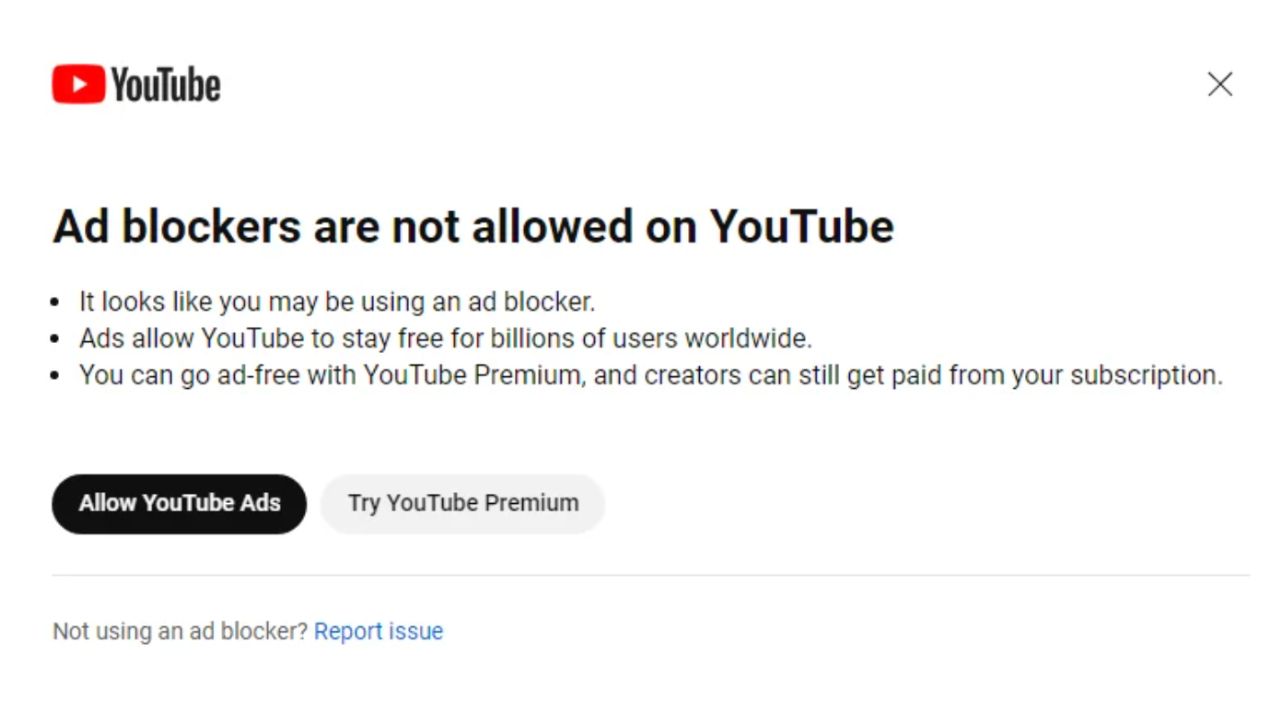
Millions of users have been dealing with performance issues across YouTube this week after an update to the popular ad blocker extension AdBlock caused a video playback bug.
In a thread posted to the YouTube subreddit at the weekend, users began reporting that Google was slowing the buffering of videos when adblocker was enabled, leading to slow load times and increased CPU usage when watching videos on the video-sharing platform.
Other issues included slow-loading thumbnail previews, full-screen video transitions and even site scrolling with the extension enabled.
Some users even claimed that their Chrome browser was struggling to play YouTube videos when AdBlocker was enabled, suggesting that the YouTube video playback was impacting the performance of the entire operating system when AdBlocker was installed.
Given its previous attempts to restrict ad blockers on the site, users assumed Google was deliberately making the YouTube video player slower when adblock was enabled.
Some media reported that YouTube Premium subscribers did not report encountering any performance issues, further convincing users that the performance hit was deliberate. But the issues did not occur when using uBlock, another AdBlocker extension.
On Monday, YouTube confirmed that it had not done anything to cause performance issues on the site despite previous attempts to restrict content when AdBlocker was enabled.
In a statement, the company's communication manager Christopher Lawton said that the “loading delays experienced by Adblock and AdBlock Plus users are not caused by our ad blocker detection efforts.”
YouTube ad blocker issues
According to issue trackers on GitHub for both AdBlock and AdBlock Plus, users have been reporting issues with the Adblock extension on YouTube since the release of the most recent updates 5.17 and 3.22.
uBlock Origin developer Raymond Hill has confirmed that these issues were not caused by a change in Google's code but by the Adblock extensions themselves, and potentially a new bug introduced in the latest updates to the extension.
Using browser profiler tools, Hill identified that the cause of the severe performance issues was the time consumed by the content script code of Adblock Plus on the YouTube webpage.
There is a lot of chatter in the last days about how Youtube is slow with content blockers.
Those performance issues affect only the latest version of both Adblock Plus (3.22) & AdBlock (5.17), and afflict more than just Youtube.
uBO is *not* affected.https://t.co/O3g48d2DT9
— R. Hill (@gorhill) January 13, 2024
"I investigated a bit the performance regressions, and the cause is many distinct code paths, and affect many sites, those for which the problematic code paths are triggered," he explained in a reply to a post on X.
Hill also notes that these performance issues are not exclusive to YouTube and may also impact other sites, especially those with regularly updating pages.
The issues aren't limited to Chrome either, as some users have also experienced similar problems with Firefox and Edge since the latest update.

Adblock and Adblock Plus are two ad blockers created by the same developer and have 113 million active users, according to figures on the Chrome Web Store.
The developers of Adblock are aware of the performance issues and are investigating them. But in a statement, they said that they couldn't reproduce the problem and asked users to provide feedback so they could determine the cause of the issues.
"Thanks for spotting that problem and for reporting it to us. We’re slowly getting similar reports from a few other users, so it does appear to be some problem with one of the changes included in version 3.22," AdBlock said in a statement.
"Unfortunately, we aren’t able to reproduce the problem ourselves yet, but we’ve created https://gitlab.com/Adblockinc/ext/Adblockplus/Adblockplusui/-/issues/1576 to keep track of it to help us find the problem and develop a fix for it."
"In general, any additional information on this could be helpful, so I’d suggest contacting support@Adblockplus.org, if you’d like to help us with that."
Google's crackdown on ad blockers
While these performance issues had nothing to do with YouTube itself, it’s no surprise users were quick to point the finger at the video-sharing platform.
Both Google and YouTube have been actively cracking down on ad blockers for a while now, with efforts intensifying in late 2023 as the extensions reach the epitome of their popularity
The Verge reported in November, for instance, that the company was deliberately adding a five-second loading delay across Chrome for users with ad block enabled.
It has also begun displaying pop-up warnings to some YouTube users stating that “ad blockers are not allowed” to try and prevent users from blocking ads across its platform.

"It looks like you may be using an ad blocker. Ads allow YouTube to stay free for billions of users worldwide," the message reads.
YouTube argues that using ad blockers violates their terms of service. This doesn't necessarily mean it's illegal, but it gives them justification for their actions.
It also encourages users to either disable ad blockers or subscribe to YouTube Premium, which offers an ad-free experience.
The effectiveness of this crackdown is debatable. Some users have switched to alternative platforms or found new ad blockers that work around YouTube's detection methods. Others have simply accepted the ads as the price of using the platform for free.
YouTube is not the only platform trying to down on ad blockers either. Streaming services like Netflix and Hulu are also taking steps to limit their use.












